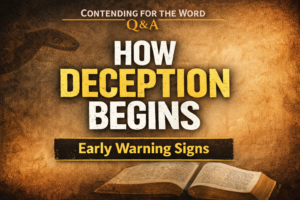⏱️ Estimated Reading Time: 5 min read
 Few issues are as fraught with as many issues as evangelism is. Growing up it was popular to think of evangelism as only sharing a certain amount of content with a lost person. The other popular method of evangelism is friendship evangelism in which you befriended a person for awhile in the hopes that the friendship might make their reception of the gospel more favorable. While both of these and other methods have some merit at some point all evangelistic methods break down. Even if a particular method of evangelism works well other Christians may feel guilty or even shamed because they aren’t engaging in that method and or not having as much success in their evangelistic efforts. The truth is that evangelism is to be part and parcel of the Christian life lived not only inside the confines of the local church but also outside of it. This is why I was happy to read Evangelism: How The Whole Church Speaks of Jesus.
Few issues are as fraught with as many issues as evangelism is. Growing up it was popular to think of evangelism as only sharing a certain amount of content with a lost person. The other popular method of evangelism is friendship evangelism in which you befriended a person for awhile in the hopes that the friendship might make their reception of the gospel more favorable. While both of these and other methods have some merit at some point all evangelistic methods break down. Even if a particular method of evangelism works well other Christians may feel guilty or even shamed because they aren’t engaging in that method and or not having as much success in their evangelistic efforts. The truth is that evangelism is to be part and parcel of the Christian life lived not only inside the confines of the local church but also outside of it. This is why I was happy to read Evangelism: How The Whole Church Speaks of Jesus.
As I noted already evangelistic fads don’t work. I say that as one who used to teach evangelism when I was involved in campus ministry and as one who used to go on the street engaging in one on one witnessing in downtown Seattle. While understanding a variety of methods and approaches to evangelism is important—Mack Stiles wants to help ministry leaders inside the local church create an evangelism culture.
Evangelism: How The Whole Church Speaks of Jesus is only five chapters. In chapter one the author tackles altar calls while in chapters two through four he explains what a culture of evangelism looks like. In the final chapter the author calls Christians to share their faith.
Some people think that preaching to the choir isn’t important. I am not one of those people. I believe that the choir needs preaching to every week and in every sermon. After all as Tim Keller says, the gospel is the A to Z of Christianity. It isn’t only non-believers who have need of the gospel; it is also Christians. When I was in seminary I frequented coffee shops in the greater Boise, Idaho area often. I would come in with a massive stack of books and commentaries. I didn’t do this with the intent of having conversations with people but eventually that happened. People would come up to me to talk to me about what I was studying and why I was working through so many books at a coffee shop. During many of these conversations I would come to realize that most of the Christians who came up to me were de-churched. They didn’t want to live their Christian life under godly qualified leadership in the context of a local church. This is sad since the New Testament knows nothing of a Christian life lived outside the walls of a local church. So, it’s not only non-Christians who need to be evangelized—it’s also Christians. We all have a great need for Jesus whether we admit it or not.
The author argues for communal evangelism that is evangelism rooted in the context of the local church where “we hold one another accountable, where we strengthen our mutual resolve, where we learn from one another, where we rejoice together in success and cry together in failure and where we bond through shared experiences in intense situations” (43). Creating a culture of evangelism in local churches happens when a church is “motivated by love for Jesus and His Gospel, confident in the Gospel, understands the danger of entertainment, sees people clearly, pulls together as one, in which people teach one another, models evangelism, people who share their faith are celebrated, knows how to affirm and celebrate new life, doing ministry that feels risky and dangerous, and understands that the Church is the best and chosen method of evangelism” (chapter 2).
Much more could be said about this excellent book on evangelism. Creating healthy church cultures where discipleship and evangelism are encouraged is the fruit of the leadership and members working together in gospel unity. Whether you’re looking for a treatment on what biblical evangelism is, or you’re a local church leader this book has something for you. This book will help readers to understand why Christians are to engage in evangelism through the ministry of their local church. Reading this book will challenge most reader’s ideas of evangelism. We all have need of being challenged in this area of our lives. As the author challenges us– he points us to the finished work of Jesus Christ. This excellent and thoughtful provoking book is filled with theological clarity and practical help by an author who practices what he preaches. I highly recommend this book and pray the Lord would powerfully use it in the life of His people for His glory.
Buy the book at Evangelism: How the Whole Church Speaks of Jesus (9Marks: Building Healthy Churches), WTS Books, or from Crossway.




